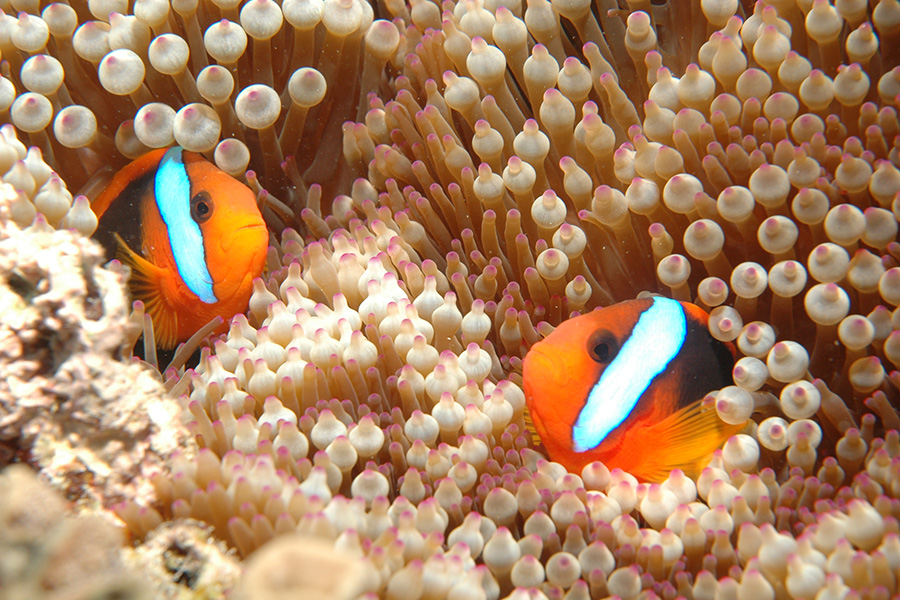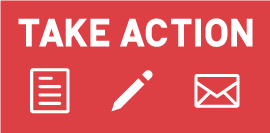Finding Nemo and climate change
January 24, 2019
Tracey Saxby

When I was seven, my parents took our family camping on Lady Elliot Island, at the southern end of the Great Barrier Reef. I remember holding my father’s hand as we snorkelled over the reef crest, watching turtles, reef sharks, and manta rays. But mostly, I remember spending hours snorkelling by myself in a little lagoon on the reef flat, watching a clown fish dash in and out of its host anemone, just like the one in the movie Finding Nemo.
I first learned about climate change when I was eleven. It was 1988. At the time, I thought “the adults” would take care of it, just like they had dealt with the hole in the ozone layer by signing the Montreal Protocol in 1987.
Ten years later while I was studying at university, the first mass coral bleaching event occurred in 1998, which was unprecedented in both extent and severity. Most of the reef flat where I had spent hours snorkelling as a child bleached and died. I decided to specialize in marine science, and for my masters thesis equivalent I studied the impacts of climate change on corals and published my first peer-reviewed paper.
Throughout my professional career, climate change has been a recurring theme in all of my work with government, industry, and universities around the world. We are facing a climate crisis, and we need to act with urgency.
For most people, it’s hard to understand the immediate threat of climate change until it affects them directly.
But BC has been on fire: 2018 is now the worst fire season on record, breaking the record set in 2017.
As Premier Horgan said in a recent CBC interview, we’ve gone "From flood to fire to flood and then again to fire. And we have had two states of emergency. That's unprecedented."
Unprecedented.
Scientists are warning that the Fraser River is now so warm that it may kill migrating sockeye salmon before they can spawn.
Doctors are warning about the health impacts of exposure to wildfire smoke, as well as the mental health impacts as most of BC was shrouded in wildfire smoke for weeks.
The costs of climate change are becoming very real.
Our communities are already preparing for immediate climate-related risks. Developing these plans and implementing these recommendations to help protect residents from climate harm carries real financial costs that are paid for by your municipal taxes.
BC taxpayers cannot afford to continue to pay 100% of the costs of preparing for and dealing with wildfires, flooding, drought, sea-level rise, extreme storms, and other impacts made worse by climate change. Fossil fuel companies are not paying their fair share – and that has to change.
My Sea to Sky is working closely with West Coast Environmental Law and many other community groups across the province on their Climate Accountability campaign. We are asking communities to send climate accountability letters to twenty of the world’s largest fossil fuel polluters, who are responsible for nearly 30% of all greenhouse gas emissions, and ask them to pay their fair share for climate costs incurred by each community. Sixteen communities have signed up so far, including Whistler, Squamish, and West Vancouver.
We believe this is a unique opportunity for climate advocacy. By holding fossil fuel polluters accountable for their role in causing climate harm to our communities we can ensure that taxpayers are not the only ones on the hook for the costs of preparing for and rebuilding from the impacts of climate change. We can impact the global fossil fuel cartels that are contributing most to climate change and give them an incentive to move towards a more sustainable economy. And we can generate a conversation about the role of the fossil fuel economy in harming our communities.
It’s been thirty years since I first learned about climate change when I was eleven, and we are now the adults that need to deal with this climate crisis. This campaign is a very simple first step to hold fossil fuel companies accountable for climate costs that are harming our communities.
*****
Take action!
Sixteen communities have joined the climate accountability campaign so far, including Victoria, Whistler, Squamish, and West Vancouver.
Please take a moment to write to your Mayor and Council and ask them to join the climate accountability campaign. We've drafted a template letter to make it easy for you.
*****
Chip in!
Can you chip in to help support climate action?

